- Home
- Patrick O'Brian
H.M.S. Surprise Page 3
H.M.S. Surprise Read online
Page 3
Sir Joseph half rose in his place and begged to be excused—he had left his notes behind—he was not perfectly well, and would not try the patience of the meeting by trying to speak without 'em—he begged pardon, but thought he would retire. It was only a passing indisposition, he said, to reassure the company: the company would not have cared if it had been the great spotted leprosy—three entomologists were already on their feet, eager for immortality in the society's Proceedings.
'What am I to infer from this?' asked Stephen of himself, as Sir Joseph passed with a distant bow; and during the following account of luminous beetles, lately received from Surinam—a fascinating account, which he should certainly read with great attention later—a cold presentiment formed in his bosom.
He carried this presentiment with him from the meeting; but he had not walked a hundred yards before a discreet messenger accosted him and gave him a card with a cipher and an invitation not to Sir Joseph's official apartments but to a little house behind Shepherd Market.
'I low good of you to come,' said Sir Joseph, seating Stephen by the fire in what was clearly his library, study and drawing-room; it was comfortable, even luxurious, in the style of fifty years before; and cases of butterflies alternated with pornographic pictures on the walls—emphatically a private house. 'How truly kind.' He was nervous and ill at ease, and he said 'how truly kind' again: Stephen said nothing. 'I begged you to come here,' Sir Joseph went on, 'because this is my private shall I say refuge, and I feel I owe you a private explanation. When I saw you this evening I was not expecting you; my conscience gave me a rude jerk—it put me about strangely, because I have exceedingly disagreeable news for you, news that I should rather have any other man deliver but that necessarily falls to me. I had prepared myself for it at our meeting tomorrow morning; and I should have done it well enough, I dare say. But seeing you suddenly there, in that atmosphere . . . To put it in a word,' he said, putting down the poker with which he had been teasing the fire, 'there has been a grave indiscretion at the Admiralty—your name was mentioned and insisted upon at a general meeting, in direct connexion with the action off Cadiz.' Stephen bowed, but still said nothing. Sir Joseph, looking at him covertly, went on. 'Of course, I drowned the indiscretion at once, and afterwards I let it be understood that you were aboard by chance, that you were bound for some undefined Eastern region in a scientific or quasi-diplomatic capacity in which a commission would be necessary for your status, for your eventual negotiations, citing the precedent of Banks and Halley—that its connexion with this incident was purely fortuitous and coincidental, occasioned only by the need for extreme haste. This I have put about as the true inside story, far more secret than the interception, known only to the initiated and not to be divulged on any account: it should answer with most of the sailors and civilians who were present. The fact remains that in spite of my efforts you are somewhat blown upon; and this necessarily calls our whole programme into question.'
'Who were the gentlemen present?' asked Stephen. Sir Joseph passed him a list. 'A considerable gathering . . . There is a strange levity,' he said coldly, 'a strange weak irresponsibility, in playing with men's lives and a whole system of intelligence in this manner.'
'I entirely agree,' cried Sir Joseph. 'It is monstrous. And I say so with the more pain since it is I who am partly at fault. I had minuted the First Lord on the subject and I wholly relied upon his discretion. But no doubt I had allowed myself to become too much accustomed to a chief upon whom I could rely without question—there never was a closer man than Lord Melville. A parliamentary government is hopeless for intelligence: new men come in, politicians rather than professionals, and we are all to seek. Your dictatorship is the only thing for intelligence: Bonaparte is far, far better served than His Majesty. But I must not evade the second unhappy issue. Although it will be a matter of public notoriety in a few days' time, I feel I must tell you myself that the Board means to treat the Spanish treasure as droits of the Crown—that is to say, it will not be distributed as prize-money. I did everything in my power to avert this decision, but I am afraid it is irrevocable. I tell you this in the faint hope that it might prevent you from committing yourself to any course of action on the contrary assumption; even a few days' warning is perhaps better than none at all. I also tell you, with the utmost regret, because I am aware that you have another interest in this—in this matter. I can only hope, alas without much conviction, that my warning may have some slight . . . you follow me. And as for my personal expressions of extreme regret, intense chagrin and concern, upon my word, I scarcely know how to phrase them with a tenth of the force they require.'
'You are very good,' said Stephen, 'and I am most sensible of this mark of confidence. I will not pretend that the loss of a fortune can be a matter of indifference to any man: I do not feel any emotion other than petty vexation at the moment, though no doubt I shall in time. But the interest to which you so obligingly refer is another matter: allow me to make it clear. I particularly wished to serve my friend Aubrey. His agent absconded with all his prize-money; the court of appeal reversed the condemnation of two neutral vessels, leaving him £11,000 in debt. This happened when he was on the point of becoming engaged to a most amiable young woman. They are deeply attached to one another; but since her mother, a widow with considerable property under her own control, is a deeply stupid, griping, illiberal, avid, tenacious, pinchfist lickpenny, a sordid lickpenny and a shrew, there is no hope of marriage without his estate is cleared and he can make at least some kind of settlement upon her. That was the position I flattered myself I had dealt with; or rather that you, a kind fate and the conjuncture had dealt with for me. That was the understanding of all concerned. What am I now to tell Aubrey when I join him at Minorca? Does anything accrue to him from this action at all?'
'Oh yes, certainly: there will certainly be an ex gratia payment: indeed, it might clear the debts you mention, or very nearly: but it will not be wealth, oh dear me no; far from it. But, my dear sir, you speak of Minorca. Do I collect that you mean to continue with our original plan, in spite of this wretched unnecessary contretemps?'
'I believe so,' said Stephen, studying the list again. 'There is so much to be gained from our recent contacts; so much to be lost by not . . . In this case it seems to me essentially a question of time: as far as common loose talk and confidential rumour are concerned, I must in all probability outrun it, since I sail tomorrow night. Information of this seeping kind is unlikely to move as fast as a determined traveller; and in any event you have dealt with the more obvious prattlers. This is the only name here I am afraid of'—pointing to the list—'He is, as you know, a paederast. Not that I have anything against paederasty myself—each man must decide for himself where beauty lies and surely the more affection in this world the better—but it is common knowledge that some paederasts are subject to pressures that do not apply to other men. If this gentleman's meetings with Monsieur de La Tapetterie could be discreetly watched, and above all if La Tapetterie could be neutralised for a week, I should have no hesitation in carrying on with our former arrangement. Even without these precautions, I doubt I should put it off; these are the merest conjectures, after all. And it is no use sending Osborne or Schikaneder—Gomez will put his head into no man's hands but mine; and without that contact the new system falls to pieces.'
'That is true. And of course you understand the local position far better than any of us. But I do not like to think of you running this added risk.'
'It is very slight, if indeed it exists at the moment—negligible if I have a fair wind and if you caulk this leak, this purely conjectural leak. For this one voyage it does not weigh at all, compared with the common daily hazards of the trade. Afterwards, if silly chatter has its usual effect, clearly I shall not be useful for some time—not until you rehabilitate me, ha, ha, with your quasi-diplomatic or scientific mission to the Cham of Tartary. When I come back from it I shall publish such papers on the cryptogams of Kamschatka that no one w
ill ever set the mark of intelligence upon my head again.'
Chapter Two
To and fro, to and fro, from Cape Sicié to the Giens peninsula, wear ship and back again, all day long, week after week, month after month, whatever the weather; after the evening gun they stood out into the offing and at dawn they were back again, the inshore squadron of frigates watching Toulon, the eyes of the Mediterranean fleet, those line-of-battle ships whose topsails flecked the southern horizon, Nelson waiting for the French admiral to come out.
The mistral had been blowing for three days now and the sea showed more white than blue, with the off-shore wind cutting up little short waves that sent spray flying over the waist of the ship: the three frigates had reduced sail at noon, but even so they were making seven knots and heeling until their larboard chains were smothered in the foam.
The tediously familiar headland of Cape Sicié came closer and closer; in this sparkling clean air under the pure sky they could see the little white houses, carts creeping on the road up to the semaphore station and the batteries. Closer, almost within range of the high-perched forty-two pounders; and now the wind was coming in gusts off the high ground.
'On deck. there,' hailed the lookout at the mast-head. 'Naiad's showing a waft, sir.'
'Hands wear ship,' said the lieutenant of the watch, more from form than anything else, for not only did the Lively have a crew that had worked together for years, but also she had carried out this manoeuvre several hundred times in this very stretch of water and the order was scarcely needed. Routine had taken the edge off the Livelies' zeal, but nevertheless the boatswain had to call out 'handsomely, handsomely, now, with that bleeding sheet'; for the crew had been brought to such a pitch of silent efficiency that the frigate ran the risk of darting her jib-boom over the taffrail of the Melpomene, her next ahead, whose talents and sailing qualities could not have recommended her anywhere.
However, round they went in succession, each wearing in the spot where her leader had turned; they hauled their wind and re-formed their rigid line, heading for Giens once more, Naiad, Melpomene, Lively.
'I do hate this wearing in succession,' said one thin midshipman to another thin midshipman, 'It does not give a man a chance: nothing can you see, not a sausage, no not a sausage; nor yet a smell of one,' he added, peering forward through the rigging and sails towards the gap between the peninsula and the island of Porquerolles.
'Sausage,' cried the other. 'Oh, Butler, what an infernal bloody thing to say.' He, too, leaned over the top of the hammocks, staring towards the passage; for at any moment now the Niobe might appear from her cruise, watering at Agincourt Sound and working back along the Italian coast, badgering the enemy and picking up what supplies she could find, and it would be the Lively's turn next. 'Sausage,' he cried above the mistral, as he stared, 'hot, crisp, squirting with juice as you bite 'em—bacon—mushrooms!'
'Shut up, fat-arse,' whispered his friend, with a vicious pinch. 'The Lord is with us.'
The officer of the watch had moved away over to leeward at the clash of the Marine sentry's salute; and a moment later Jack Aubrey stepped out of the cabin, muffled in a griego, with a telescope under his arm, and began to pace the quarterdeck, the holy windward side, sacred to the captain. From time to time he glanced up at the sails: a purely automatic glance—nothing called for comment, of course: she was a thoroughly efficient machine, working smoothly. For this kind of duty the Lively would function perfectly if he were to stay in his cot all day. No reproach was possible, even if he had felt as liverish as Lucifer after his fall, which was not the case; far from it; he and the men under his command had been in a state of general benignity these many weeks and months, in spite of the tedium of a close blockade, the hardest and most wearisome duty in the service; for although wealth may not bring happiness, the immediate prospect of it provides a wonderfully close imitation and last September they had captured one of the richest ships afloat. His glance, then, was filled with liking and approval; yet still it did not contain that ingenuous love with which he had gazed at his first command, the short, thick, unweatherly Sophie. The Lively was not really his ship; he was only in temporary command, a jobbing-captain until such time as her true owner, Captain Hamond, should return from his seat at Westminster, where he represented Coldbath Fields in the Whig interest; and although Jack prized and admired the frigate's efficiency and her silent discipline—she could flash out a full suit of canvas with no more than the single quiet order 'Make sail', and do so in three minutes forty-two seconds—he could not get used to it. The Lively was a fine example, an admirable example, of the Whiggish state of mind at its best; and Jack was a Tory. He admired her, but it was with a detached admiration, as though he were in charge of a brother-officer's wife, an elegant, chaste, unimaginative woman, running her life on scientific principles.
Cape Cépet lay broad on the beam, and slinging his telescope he hoisted himself into the ratlines—they sagged under his weight—and climbed grunting into the maintop. The topmen were expecting him, and they had arranged a studdingsail for him to sit on. 'Thankee, Rowland,' he said, 'uncommon parky, hey? Hey?' and sank down upon it with a final grunt, resting his glass on the aftermost upper deadeye of the topmast shrouds and training it on Cape Cépet: the signal-station leapt into view, bright and clear, and to its right the eastern half of the Grande Rade with five men-of-war in it, seventy-fours, three of them English. Hannibal, Swiftsure and Berwick: they were exercising their crews at reefing aboard the Hannibal, and quantities of people were creeping up the rigging of the Swiftsure, landmen under training, perhaps. The French nearly always had these captured ships in the outer Rade; they did it to annoy, and they always succeeded. Twice every day it vexed him to the heart, for every morning and every afternoon he went aloft to peer into the Rade. This he did partly out of professional conscience, although there was not the slightest likelihood of their coming out unless they had thick weather and such a gale of wind that the English fleet would be blown off station; and partly because it was some sort of exercise. He was growing fat again, but in any case he had no intention of getting out of the way of running up and down the rigging, as some heavy captains did: the feel of the shrouds under his hands, the give and spring of live rigging, the heave and swing on the roll as he came over into the top made him deeply happy.
The rest of the anchorage was coming into view, and with a frown Jack swung his glass to inspect the rival frigates: seven of them still, and only one had moved since yesterday. Beautiful ships: though in his opinion they over-raked their masts.
Now the moment was coming. The church tower was almost in line with the blue dome, and he focused with renewed attention. The land hardly seemed to move at all, but gradually the arms of the Petite Rade opened, and there was the inner harbour, a forest of masts, all with their yards across, all in apparent readiness to come out and fight. A vice-admiral's flag, a rear-admiral's, a commodore's broad pennant: no change. The arms were closing; they glided imperceptibly together, and the Petite Rade was closed.
Jack shifted his aim until the Faro hill came into sight, then the hill behind it, and he searched the road for the little inn where he and Stephen and Captain Christy Pallière had eaten and drunk such a capital dinner not so very long ago, together with another French sea-officer whose name he forgot. Precious hot then: precious cold now. Wonderful food then—Lord, how they had stuffed!—precious short commons now. At the thought of that meal his stomach gave a twinge: the Lively, though she considered herself the wealthiest ship on the station and conducted herself with a certain reserve towards the paupers in company, was as short of fresh provisions, tobacco, firewood and water as the rest of the fleet, and because of a murrain among the sheep and measles in the pigsty even her officers' stores were being eked out with the wicked old salt horse of his 'young gentleman' days, while all hands had been eating ship's biscuits for a great while now. There was a small shoulder of not altogether healthy mutton for Jack's dinner: 'Shall I invite th
e officer of the watch?' he wondered. 'It is some time since I had anyone to the cabin, apart from breakfast.' It was some time, too, since he had spoken to anyone on a footing of real equality or with any free exchange of minds. His officers—or rather Captain Hamond's officers, for Jack had had no hand in choosing or forming them—entertained him to dinner once a week in the gun-room, and he invited them quite often to the cabin, almost always breakfasting with the officer and midshipman of the morning watch; but these were never very cheerful occasions. The gentlemanly, but slightly Benthamite, gun-room were strict observers of the naval etiquette that prevented any subordinate from speaking to his captain without being spoken to first; and they had grown thoroughly used to Captain Hamond, to whose mind this was a congenial rigour. And then again they were a proud set of men—most of them could afford to be—and they had a horror of the ingratiating manoeuvres, the currying of favour that was to be seen in some ships, or any hint of it: once they had had an overpliable third lieutenant wished upon them, and they had obliged him to exchange into the Achilles within a couple of months. They carried this attitude pretty high, and without disliking their temporary commander in the very least—indeed they valued him exceedingly both as a seaman and a fighting captain—they unconsciously imposed an Olympian role upon him; and at times the silence in which he lived made him feel utterly forlorn. At times only, however, for he was not often idle; there were duties that even the most perfect first lieutenant could not take off his hands, and then again in the forenoon he supervised the midshipmen's lessons in his cabin. They were a likeable set of youngsters, and even the Godlike presence of the captain, the severity of their schoolmaster, and the scrubbed, staid example of their elders could not repress their cheerfulness. Even hunger could not do so, and they had been eating rats this last month and more, rats caught in the bowels of the ship by the captain of the hold and laid out, neatly skinned, opened and cleaned, like tiny sheep, in the orlop, for sale at a price that rose week by week, to reach its present shocking rate of fivepence a knob.

 The Final Unfinished Voyage of Jack Aubrey
The Final Unfinished Voyage of Jack Aubrey The Rendezvous and Other Stories
The Rendezvous and Other Stories Caesar: The Life Story of a Panda-Leopard
Caesar: The Life Story of a Panda-Leopard The Hundred Days
The Hundred Days The Yellow Admiral
The Yellow Admiral The Fortune of War
The Fortune of War The Mauritius Command
The Mauritius Command Beasts Royal: Twelve Tales of Adventure
Beasts Royal: Twelve Tales of Adventure A Book of Voyages
A Book of Voyages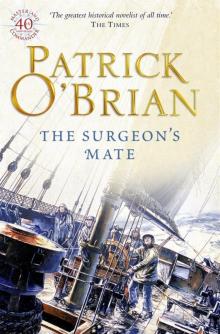 The Surgeon's Mate
The Surgeon's Mate The Golden Ocean
The Golden Ocean Hussein: An Entertainment
Hussein: An Entertainment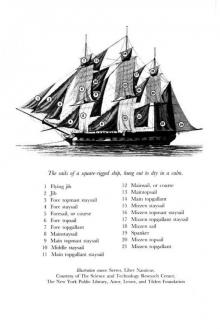 H.M.S. Surprise
H.M.S. Surprise The Far Side of the World
The Far Side of the World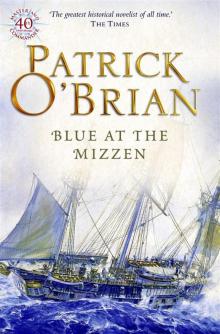 Blue at the Mizzen
Blue at the Mizzen The Unknown Shore
The Unknown Shore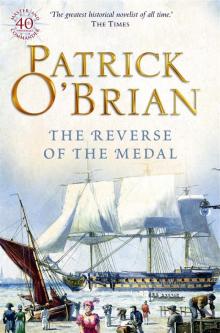 The Reverse of the Medal
The Reverse of the Medal Testimonies
Testimonies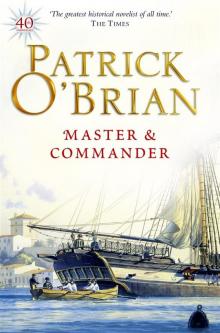 Master and Commander
Master and Commander The Letter of Marque
The Letter of Marque Treason's Harbour
Treason's Harbour The Nutmeg of Consolation
The Nutmeg of Consolation 21: The Final Unfinished Voyage of Jack Aubrey
21: The Final Unfinished Voyage of Jack Aubrey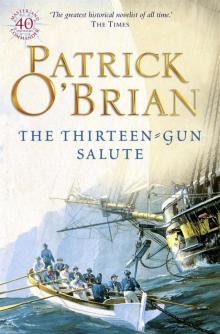 The Thirteen-Gun Salute
The Thirteen-Gun Salute The Ionian Mission
The Ionian Mission Men-of-War
Men-of-War The Commodore
The Commodore The Catalans
The Catalans Aub-Mat 08 - The Ionian Mission
Aub-Mat 08 - The Ionian Mission Post Captain
Post Captain The Road to Samarcand
The Road to Samarcand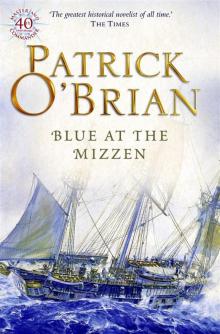 Book 20 - Blue At The Mizzen
Book 20 - Blue At The Mizzen Book 14 - The Nutmeg Of Consolation
Book 14 - The Nutmeg Of Consolation Caesar
Caesar The Wine-Dark Sea
The Wine-Dark Sea Book 8 - The Ionian Mission
Book 8 - The Ionian Mission Book 12 - The Letter of Marque
Book 12 - The Letter of Marque Hussein
Hussein Book 9 - Treason's Harbour
Book 9 - Treason's Harbour Book 19 - The Hundred Days
Book 19 - The Hundred Days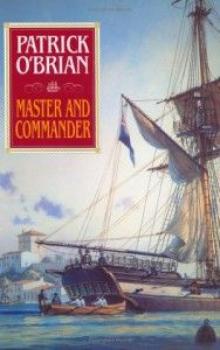 Master & Commander a-1
Master & Commander a-1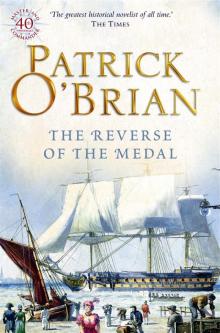 Book 11 - The Reverse Of The Medal
Book 11 - The Reverse Of The Medal Book 2 - Post Captain
Book 2 - Post Captain The Truelove
The Truelove The Thirteen Gun Salute
The Thirteen Gun Salute Book 17 - The Commodore
Book 17 - The Commodore The Final, Unfinished Voyage of Jack Aubrey
The Final, Unfinished Voyage of Jack Aubrey Book 10 - The Far Side Of The World
Book 10 - The Far Side Of The World Book 5 - Desolation Island
Book 5 - Desolation Island Beasts Royal
Beasts Royal Book 18 - The Yellow Admiral
Book 18 - The Yellow Admiral Book 15 - Clarissa Oakes
Book 15 - Clarissa Oakes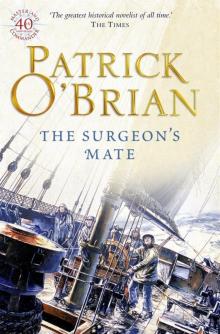 Book 7 - The Surgeon's Mate
Book 7 - The Surgeon's Mate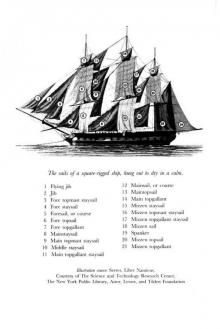 Book 3 - H.M.S. Surprise
Book 3 - H.M.S. Surprise Desolation island
Desolation island Picasso: A Biography
Picasso: A Biography Book 4 - The Mauritius Command
Book 4 - The Mauritius Command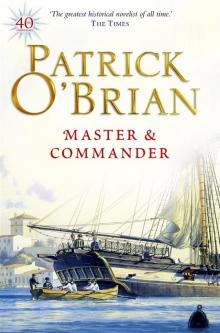 Book 1 - Master & Commander
Book 1 - Master & Commander Book 6 - The Fortune Of War
Book 6 - The Fortune Of War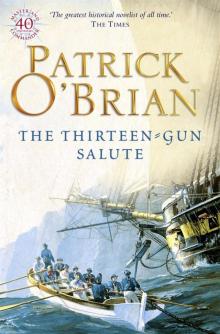 Book 13 - The Thirteen-Gun Salute
Book 13 - The Thirteen-Gun Salute Book 16 - The Wine-Dark Sea
Book 16 - The Wine-Dark Sea